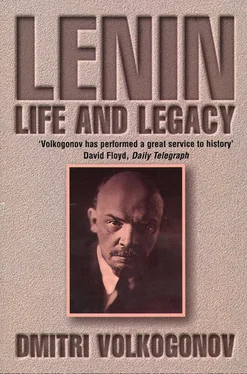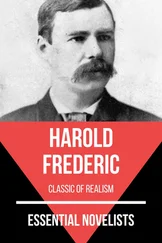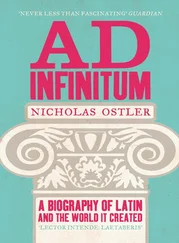Nadezhda settled straight away into serving as her husband’s workmate, helping him select material, rewriting passages, listening as he read her some of his chapters, though rarely offering critical comment. They were destined to be childless, though neither apparently ever confided their disappointment to anyone. Perhaps there was a clue in the letter he wrote to his mother from Pskov, having left Shushenskoe and Nadezhda temporarily: ‘Nadya must still rest: the doctor found, as she wrote to me a week ago, that her (woman’s) illness requires sustained treatment and that she must rest for 4–6 weeks (I sent her more money, I got 100 roubles from Vodovozova), as the treatment is going to cost quite a bit.’ 86 Later, when they were abroad, Nadezhda contracted exophthalmic goitre, or Graves’ Disease, and had to undergo surgery. Lenin, again writing to his mother, reported that ‘Nadya was very poorly, very high temperature and delirium, and it gave me quite a scare’. 87 It is worth noting, perhaps, that between them, all of the Ulyanov siblings produced only two children – Dmitri had a son and a daughter, Olga, who is still alive at the time of writing (1994). Nadezhda says nothing about this in her memoirs, although occasionally she allows the pain of her personal unfulfilment to break through when describing the lives of others. She commented, for instance, that Vera Zasulich, with whom she was extremely close and who lived alone, missed not having a family: ‘She had an enormous need for a family. One had only to see how lovingly she played with Dimka’s fair-haired little boy.’ 88 ‘Dimka’ was Lenin’s brother Dmitri, the sole parent of his generation of Ulyanovs.
Krupskaya’s prominent place in Soviet history is, obviously enough, explained by the fact that she was Lenin’s wife. It might be argued that she also played a part in her own right, as witnessed by the eleven editions of her collected writings on education that were published by 1963. But all of her ideas on Communist education were based on her husband’s comments, and do not merit special attention. Her memoirs, however, do have historical value, especially when she is dealing with Lenin’s last years and his illness. Her notes entitled ‘The last six months of the life of V.I. Lenin’, read together with the memoirs of Lenin’s sister Maria, give the fullest account of that fateful period, and draw aside the veil on many hitherto unknown details, though neither of these women could reveal everything they knew, and their most informative reminiscences remained under lock and key in the Party archives. 89
The marriage which began without strong love became closer over the years, but Nadezhda was in effect Lenin’s shadow, her life having meaning only because she was linked to him. When they went abroad, she soon adapted to the leisurely pace her husband set, as the letters Lenin wrote to his mother between 1900 and 1914 indicate: ‘I still follow my summer style of life, walking, swimming and doing nothing’; from Finland he wrote: ‘The rest here is wonderful, swimming, walks, no people around, nothing to do. Having no people around and nothing to do is best of all for me’; from France: ‘We’re going to Brittany for a holiday, probably this Saturday’; from Poland to his mother in Vologda: ‘It’s already spring here: the snow’s all gone, it’s very warm, we go without galoshes, the sun’s shining especially bright above Cracow, it’s hard to think that this is “wet” Cracow. Too bad you and Manyasha [Maria] have to live in that miserable dump!’ 90
The telegram lay on the desk in front of Lenin, but he seemed unable to grasp its message, and had to read it several times: ‘Top priority. To Lenin, Sovnarkom, Moscow. Unable to save Comrade Inessa Armand sick with cholera STOP She died 24 September [1920] STOP Sending body to Moscow signed Nazarov.’ 91 The shock was all the greater because earlier that very day Ordzhonikidze, his emissary in the Caucasus, had told him that Inessa was fine, when Lenin had asked him to see that she and her son were being taken care of. Nor could he forget that it had been at his insistence that she went to the south for a rest. She had wanted to go to France, but he had dissuaded her. It was so absurd, so senseless. Why hadn’t the doctors been able to help? Why cholera? He was shattered. As Alexandra Kollontai, a senior Bolshevik who knew them both well, said later: ‘He could not survive Inessa Armand. The death of Inessa precipitated the illness which was fatal.’ 92
Lenin had no close friends. It would be hard to find someone, apart from his mother, for whom he showed greater concern than Inessa Armand. In his last letter to her, around the middle of August 1920, he had written:
Dear friend,
I was sad to learn that you [he addressed her formally as Vy ] are overtired and not happy with your work and the people around you (or your colleagues at work). Can’t I do something for you, get you into a sanatorium? I’ll do anything with great pleasure. If you go to France I will, of course, help with that, too: I’m a bit concerned, in fact I’m afraid, I’m really afraid you could get into trouble … They’ll arrest you and keep you there a long time … You must be careful. Wouldn’t it be better to go to Norway (where many of them speak Engish), or Holland? Or Germany as a Frenchwoman, a Russian (or a Canadian?). Best not to go to France where they could put you inside for a long time and are not even likely to exchange you for anyone. Better not go to France.
I’ve had a marvellous holiday, got tanned, didn’t read a line or take a single phone call. The hunting used to be good, but it’s been all ruined. I hear your name everywhere: ‘Things were all right with them here,’ and so on. If you don’t fancy a sanatorium, why not go to the South? To Sergo [Ordzhonikidze] in the Caucasus? Sergo will arrange rest, sunshine, interesting work, he can fix it all up. Think about it.
He signed off conventionally as ‘Yours, Lenin’. 93
Lenin had been hearing Inessa’s name everywhere because he was close to the Armand family estate in the village of Yeldigino in Moscow province. What there was to hunt in August is unclear.
On the same day he wrote, as head of the Soviet government: [To whom it may concern] ‘I request that you help in every way possible to arrange the best accommodation and treatment for the writer, Comrade Inessa Fedorovna Armand, and her elder son. I request that you give complete trust and all possible assistance to these Party comrades with whom I am personally acquainted.’ 94 He also cabled Ordzhonikidze, asking him to put himself out over Inessa’s safety and accommodation in Kislovodsk, and ordered his secretaries to help see her off to the Caucasus. Although Russia was still enduring the civil war, the Bolshevik leadership were accustomed to frequent holidays. Hence Lenin could insist on the fateful trip.
For a decade, since they had met in Paris in 1909, Inessa Armand had occupied an enormous space in the life of a man whose dedication to the Great Idea left little or no room for anything else. She had succeeded in touching chords hidden deep in his near-puritanical heart. He had felt a constant need to be with her, write to her, talk to her. His wife did not stand in their way. As Alexandra Kollontai recalled in the 1920s, in conversation with her colleague at the Soviet legation in Norway, Marcel Body, Krupskaya was ‘ au courant ’. She knew how closely ‘Lenin was attached to Inessa and many times expressed the intention of leaving’, but Lenin had persuaded her to stay. 95
This appears to have been one of those rare triangles in which all three people involved behaved decently. Feelings of attachment and love do not readily lend themselves to rational explanation. If Lenin’s life was filled with the turbulence of politics and revolutionary activity, on the personal level it had been monotonous, flat, boring. Inessa entered his life in emigration like a comet. It is pointless to speculate what it was about her that attracted him. She was extremely beautiful, elegant and full of creative energy, and that was perhaps enough. Also, she was open and passionate about everything she did, whether it was caring for her children or the revolution or the routine Party jobs she was asked to do. She was an exceptional person, emotional, responsive and exciting. For all his old-fashioned views on family life, Lenin was unable to suppress the strong feelings she evoked in him. For the historian, however, it is as difficult to write about feelings as it is to try to convey in words the sound of a symphony.
Читать дальше












